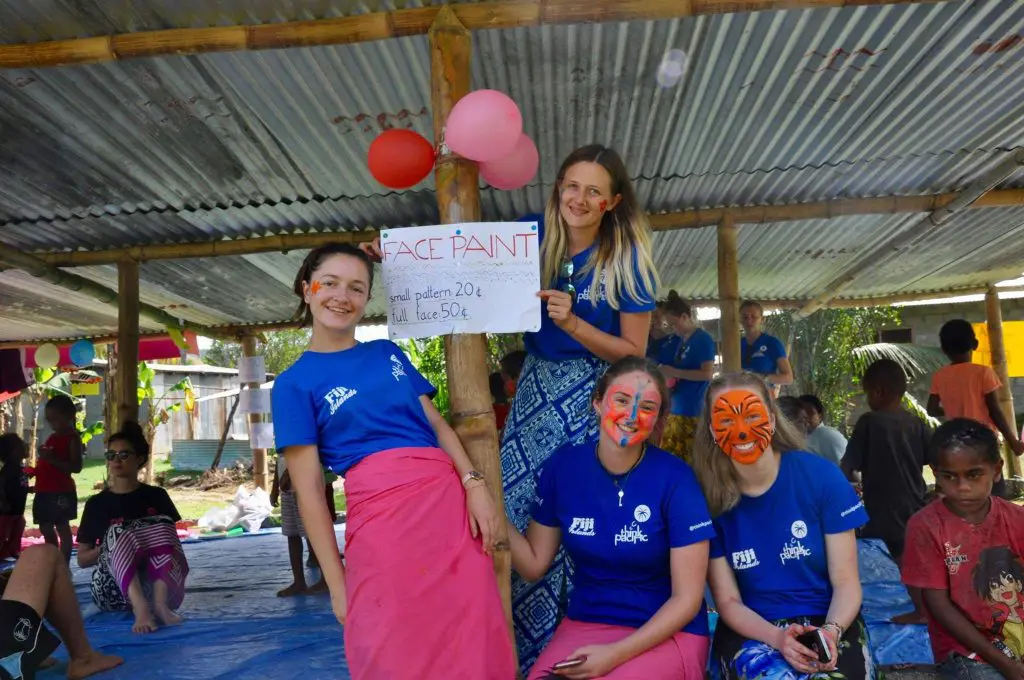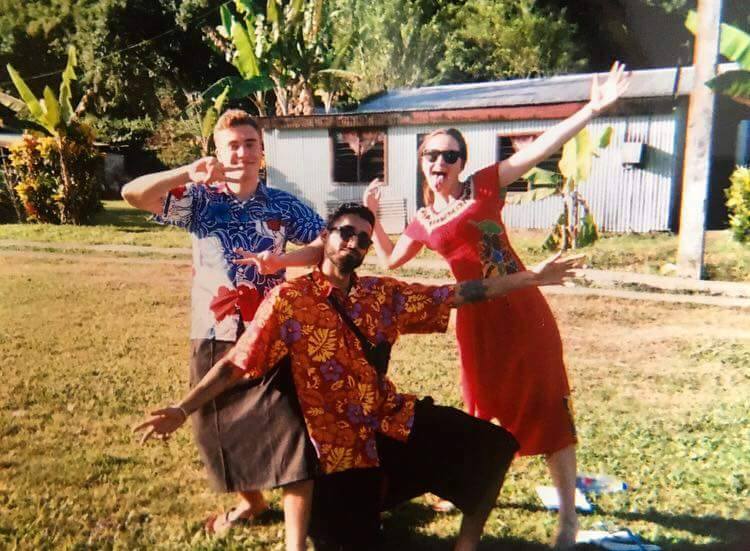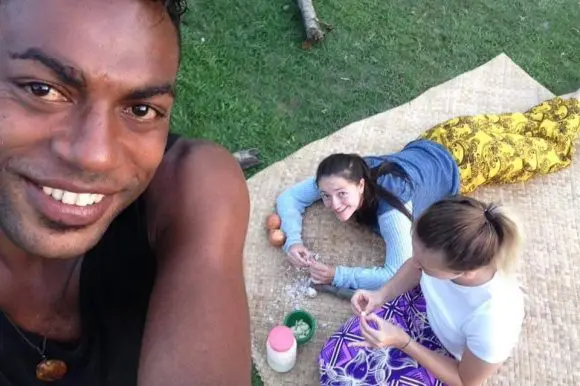“My Great Fijian Adventure” by Raphaela Waschnig, with Durham Students to Fiji Society 2017

“My Great Fijian Adventure” by Raphaela Waschnig, with Durham Students to Fiji Society 2017
2nd Year Student, International Relations, Durham University
“We shared tears of joy when we laughed and tears of sadness when we parted at the end of the project”
Raphaela looks back on her experience as a member of the inaugural ‘Durham Students to Fiji’ volunteer expedition. A volunteering society at Durham University, which was created in 2017 by current students Amy Curren & Emma Howell, on the back of their own experience & love for Fiji.
After attending a presentation at the university in February, Raphaela applied to join the team and then headed out to Fiji for 4 weeks in July to live with a family in a traditional Fijian village whilst volunteering in a remote primary school to uplift education and sports opportunities for children living in hardship – in partnership with the Fijian Ministry of Education, Fijian Ministry of Health & the Fijian Ministry of Youth & Sports.


On Adapting to Fijian Village Life…
“One of the most enriching parts of my 1-month project at Mavua village was experiencing the traditional Fijian lifestyle. Upon arrival in Mavua, we were greeted with a Kava ceremony by the head of the village and we were soon introduced to our Fijian Lewa and Tou- our Fijian host mothers and fathers. Before the project I remember I was slightly worried about living with a Fijian host family and eating traditional food, but it is safe to say that these were some of the best aspects of the project! To say that I bonded well with my Fijian family is quite the under-statement: we shared tears of joy when we laughed and tears of sadness when we parted at the end of the project.”
The Fijian Food…
“In terms of food, Fiji’s exotic fruits and vegetables are a foodie’s delight. Throughout the project we ate a lot of locally-grown spinach, lettuce and root crops like Cassava and Dalo. One of my most special memories was going to the tropical rainforest – conveniently located right behind our house – with our Tou, who had decided to go barefoot (yes, in the rainforest!). He was equipped with a very large machete-like knife to cut through all the plants to create a path for us. This felt surreal itself, but even more so when he pointed out all the endemic fruits in the rainforest, including vudi (also known as banana’s big brother, tastes like a mixture of banana and plantain), guava and soursop (a large spiky looking fruit with lots of hard seeds, creamy in texture). Our Tou also conveniently found some curry roots, which were later used to cook our dinner. At times I certainly craved European food, but I also miss some of the Fijian specialties. One of my highlights of the entire project was eating VakaSoko, which is basically cooked banana’s big brother with coconut milk and sugar. It tastes amazingly sweet and is packed with nutrients. I am still looking for a shop at home that sells banana’s big brother! We also got to taste some Fijian curries, dhal, octopus, muscles, various local fish, and even ice-cream.”



Volunteering in Nabitu Primary School…
“While the Food and village life definitely provide some very absurd and funny stories to tell to family and friends at home, my biggest highlight was finding out about our impact at the end of the project. The majority of the project I taught in classes 7&8 in Nabitu Primary School, the class of the headmaster. When our team first visited the school the headmaster recounted how he had prayed for help at his school, and that he was so thankful that his prayers had finally been heard. This is only one of many heart-warming stories of how much Fijians truly appreciated our help.
When I first met the headmaster, who teaches all subjects to classes 7&8, he told me that last year only one student out of around 25 had passed the final examinations permitting entry into high school. By the time of our farewell ceremony, through the help of my own and some of the other volunteers’ teaching, that figure had risen to three. While this might sound like only a small achievement, it paved the way for two impoverished children to go to High School, which could eventually enable them to go to university rather than working on one of the many plantations in Fiji. I am still very proud of myself, knowing that my work contributed to two children having an academic future. This is what Think Pacific’s 500 volunteers have achieved on a larger scale this summer.”
How Fiji Has Impacted Me…
“One evening, after a long and hot day of teaching, I talked to the village’s Kindergarten teacher, my Fijian sister. I showed her pictures of my home and my family. I explained that at home we buy a lot of imported foods in large supermarkets and we pay rent for our homes. While she was certainly amazed by the European way of living, she also respectfully remarked that she would not like to live like us. She said that it must be terrible having to worry so much about money, not knowing if you have a place to stay if you cannot afford the rent. In Fiji, she annotated, you don’t have to worry if you walk around and don’t have any money in your pockets. The traditional culture of sharing means that you will always have a place to stay and some food to eat. Life may be a lot simpler in Fiji, but it also comes with fewer worries. This was really eye-opening for me, as I realised that I rarely used money in Fiji to buy things. The project certainly showed me that a life with very few money exchanges can be just as fulfilling and is indeed the reality to many Fijians every day.”



To learn more about the Durham Students to Fiji society, head to facebook.com/DurhamStudentsToFiji/
For more information about Think Pacific student volunteer projects, please visit www.thinkpacific.com
